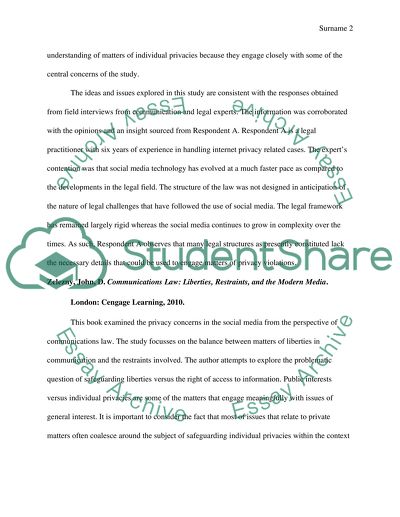Cite this document
(How Social Media and Internet Violates Privacy Annotated Bibliography, n.d.)
How Social Media and Internet Violates Privacy Annotated Bibliography. Retrieved from https://studentshare.org/social-science/1608982-how-social-mediainternet-facebooktwitter-violates-privacy
How Social Media and Internet Violates Privacy Annotated Bibliography. Retrieved from https://studentshare.org/social-science/1608982-how-social-mediainternet-facebooktwitter-violates-privacy
(How Social Media and Internet Violates Privacy Annotated Bibliography)
How Social Media and Internet Violates Privacy Annotated Bibliography. https://studentshare.org/social-science/1608982-how-social-mediainternet-facebooktwitter-violates-privacy.
How Social Media and Internet Violates Privacy Annotated Bibliography. https://studentshare.org/social-science/1608982-how-social-mediainternet-facebooktwitter-violates-privacy.
“How Social Media and Internet Violates Privacy Annotated Bibliography”, n.d. https://studentshare.org/social-science/1608982-how-social-mediainternet-facebooktwitter-violates-privacy.


